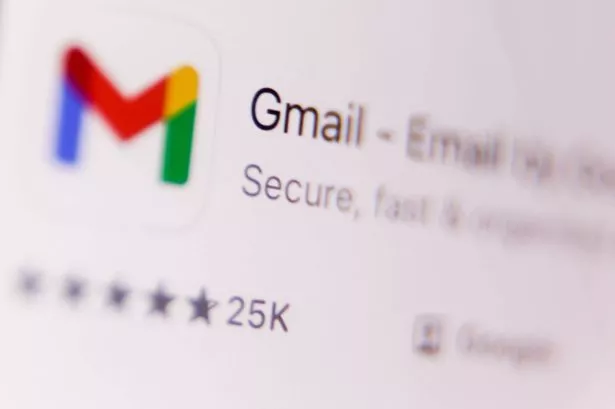Google has issued a “red alert” after it emerged that hackers may be using a new artificial intelligence scam to steal your data – and it’s all to do with the Gemini chatbot
Alan Johnson Social News Reporter
18:49, 26 Jul 2025
 Users of Gmail have been issued a ‘red alert’ over a new AI scam (stock)(Image: Jakub Porzycki/NurPhoto via Getty Images)
Users of Gmail have been issued a ‘red alert’ over a new AI scam (stock)(Image: Jakub Porzycki/NurPhoto via Getty Images)
Google has issued a “red alert” to anyone who holds one of its 1.8billion accounts over a new artificial intelligence scam reportedly being used by cyber criminals.
Tech expert Scott Polderman explained the data-stealing scam involves another Google product, Gemini, an AI assistant known as a chatbot.
“So hackers have figured out a way to use Gemini – Google’s own AI – against itself,” he clarified. “Essentially, hackers are sending an email with a hidden message to Gemini to reveal your passwords without you even realising.”
READ MORE: Cleaning hack will stop dust sticking to blinds and window sills for up to a monthREAD MORE: Ryanair passenger reveals travel hack for quicker airport queueing
Scott highlighted that this scam is unique from previous ones as it is “AI against AI” and could set a precedent for future attacks in the same vein, reports the Daily Record.
He elaborated: “These hidden instructions are getting AI to work against itself and have you reveal your login and password information.”
Scott continued, explaining why so many users are falling victim to the problem. “There is no link that you have to click [to activate the scam],” he said.
“It’s Gemini popping up and letting you know you are at risk.”
He also advised that Google has previously stated it will “never ask” for your login information or “never alert” you of fraud through Gemini.
Another tech expert, Marco Figueroa, added that criminals dispatch emails containing prompts that Gemini can detect, with the font size configured to zero and the text colour set to white so users don’t notice it.
One TikTok user offered additional advice to protect against the scam, writing: “To disable Google Gemini’s features within your Gmail account, you need to adjust your Google Workspace settings. This involves turning off ‘SMART FEATURES’ and potentially disabling the Gemini app and its integration within other Google products.”
Another user commented: “I never use Gemini, still I might change my password just in case.”
A third person expressed their frustration, stating: “I’m sick of all of this already. I’m going back to pen and paper!”.
Echoing similar sentiments, a fourth user said: “I quit using Gmail a long time ago! Thank you for the alert! I’ll go check my old accounts.”
Google issued a warning on its security blog last month, saying: “With the rapid adoption of generative AI, a new wave of threats is emerging across the industry with the aim of manipulating the AI systems themselves. One such emerging attack vector is indirect prompt injections.
“Unlike direct prompt injections, where an attacker directly inputs malicious commands into a prompt, indirect prompt injections involve hidden malicious instructions within external data sources. These may include emails, documents, or calendar invites that instruct AI to exfiltrate user data or execute other rogue actions.
“As more governments, businesses, and individuals adopt generative AI to get more done, this subtle yet potentially potent attack becomes increasingly pertinent across the industry, demanding immediate attention and robust security measures.”
However, the technology behemoth attempted to reassure users, declaring: “Google has taken a layered security approach introducing security measures designed for each stage of the prompt lifecycle. From Gemini 2.5 model hardening, to purpose-built machine learning (ML) models detecting malicious instructions, to system-level safeguards, we are meaningfully elevating the difficulty, expense, and complexity faced by an attacker.
“This approach compels adversaries to resort to methods that are either more easily identified or demand greater resources.”
For all the latest news, visit the Belfast Live homepage here and sign up to our daily newsletter here.

